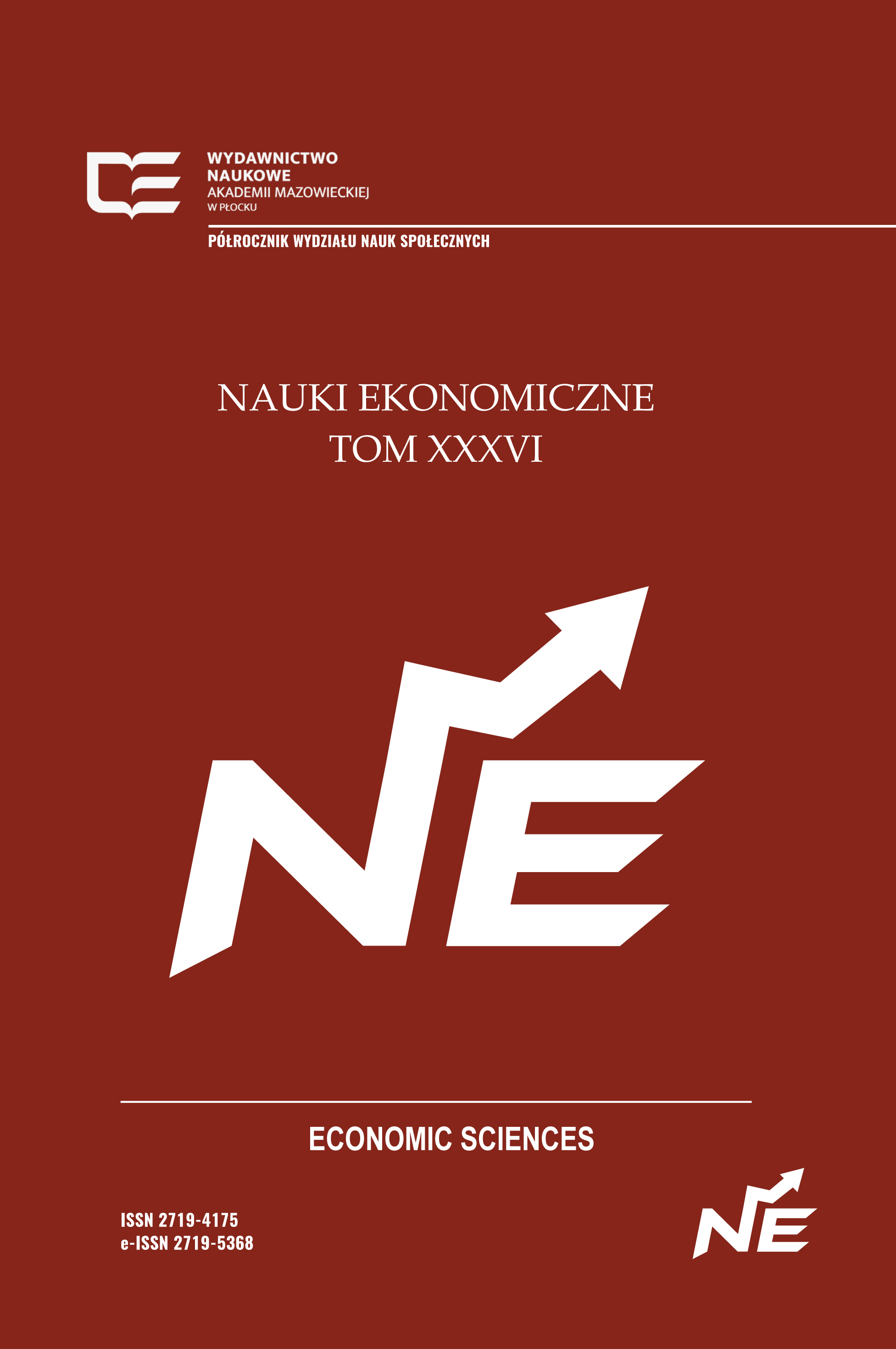DIRECTIONS OF INFLUENCE OF THE IFRS S1 AND IFRS S2 STANDARDS ON ACCOUNTING AS AN INFORMATION SYSTEM ON SUSTAINABLE DEVELOPMENT OF ECONOMIC ENTITIES
DOI:
https://doi.org/10.19251/ne/2022.36(10)Keywords:
sustainable development, sustainable development accounting, IFRS, climate risksAbstract
The aim of the article is to analyze the proposed international standards IFRS S1 and IFRS S2 and their impact on the company's accounting. The following research hypothesis was formulated: the application of the proposed IFRS S1 and IFRS S2 standards will contribute to a better recognition of whether a given enterprise conducts activities focused on sustainable development. In order to verify the hypothesis, the analysis of domestic and foreign literature, industry reports, and the analysis of draft standards were used.
References
Boyd, J. (1998). Accounting: An Economic Framework to Indentify Priorities, Resources For The Futures, Washington.
Cieślak, M. (2011). Podejście etyczne w rachunkowości a jakość sprawozdań finansowych, Wydawnictwo Uniwersytetu Ekonomicznego.
Deloitte. (2022). IFRS Newsletter Bringing you the latest information on recent IFRS topics.
Gabrusewicz, T. (2010). Rachunkowość odpowiedzialności społecznej w kształtowaniu zasad nadzoru korporacyjnego, C.H. Beck, Warszawa.
IFRS. (2022a). General Sustainability-related Disclosures, https://www.ifrs.org/projects/work-plan/general-sustainability-related-disclosures/ (dostęp 30.09.2022).
IFRS. (2022b). Exposure Draft—Snapshot, https://www.ifrs.org/ (dostęp 30.09.2022).
Jaworski, T., Grochowska, S. (2017). Circular Economy - the criteria for achieving and the prospect of implementation in Poland, „Archives of Waste Management and Environmental Protection/ Archiwum Gospodarki Odpadami i Ochrony Środowiska”, vol. 19, issue 4.
Kwiecień, M. (2016). Sprawozdanie zintegrowane – innowacja paradygmatów rachunkowości, „Zeszyty Teoretyczne Rachunkowości”, t. 87 (143).
Micherda, B., Górka, Ł., Szulc, M. (2010). Zarządcza interpretacja sprawozdania finansowego, Difin, Warszawa.
ONZ, (2015). Agenda na rzecz zrównoważonego rozwoju 2030.
Paszkiewicz, A., Szadziewska, A. (2011). Raportowanie rozwoju zrównoważonego przedsiębiorstw według wytycznych GRI, „Zeszyty Naukowe Uniwersytetu Szczecińskiego. Finanse, Rynki Finansowe, Ubezpieczenia”, nr 41.
Pieloch-Babiarz, A., Misztal, A., Kowalska, M. (2021). An impact of macroeconomic stabilization on the sustainable development of manufacturing enterprises: the case of Central
and Eastern European Countries, „Environment, Development and Sustainability”, no 23.
Raftowicz-Flipkiewicz, M. (2013). Konkurencyjność przedsiębiorstw ukierunkowanych na zrównoważony rozwój w warunkach kryzysu gospodarczego, Ekonomia-Wrocław, Economic Review 19/1, Acta Universitatis Wratislaviensis, no.3534.
Ruggerio, C.A. (2021). Sustainability and sustainable development: A review of principles
and definitions, „Science of The Total Environment”, no 786.
Szczypa, P. (2012). Narzędzia rachunkowości wspomagające działalność proekologiczną przedsiębiorstw w Polsce, CeDeWu, Warszawa.
Ślażyńska-Kluczek, D. (2022), Zielone obligacje jako metoda finansowania projektów inwestycyjnych w Polsce, „Kwartalnik Nauk o Przedsiębiorstwie”, nr 1.
Toffler, A. (1997). Trzecia fala, Państwowy Instytut Wydawniczy, Warszawa.
Ustawa z dnia 27 kwietnia 2001 r. Prawo ochrony środowiska (Dz.U.2021.1973 t.j.)
Weidinger, C. (2014). Business Success Through Sustainability, w: Weidinger, C., Fischler,
F., Schmidpeter, R. (red.), Sustainable Entrepreneurship, CSR, Sustainability, Ethics &
Governance, Heidelberg: Springer, Berlin.
